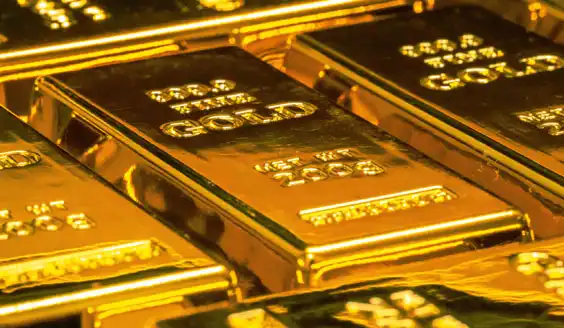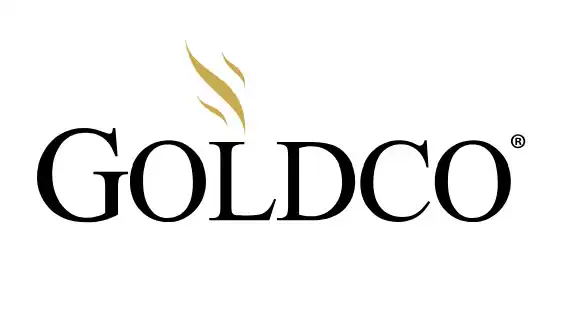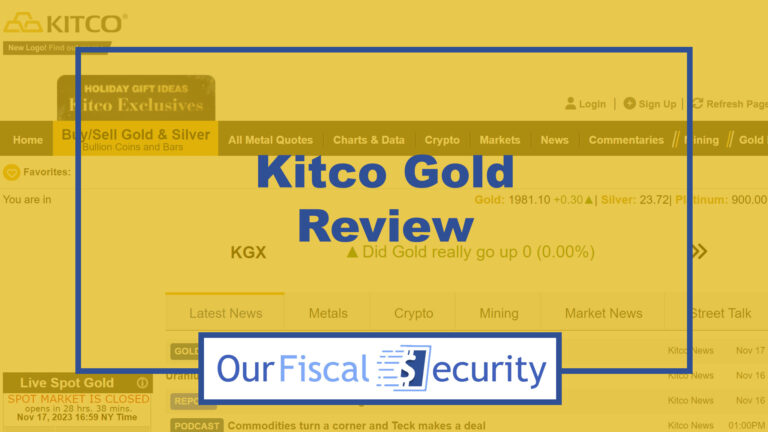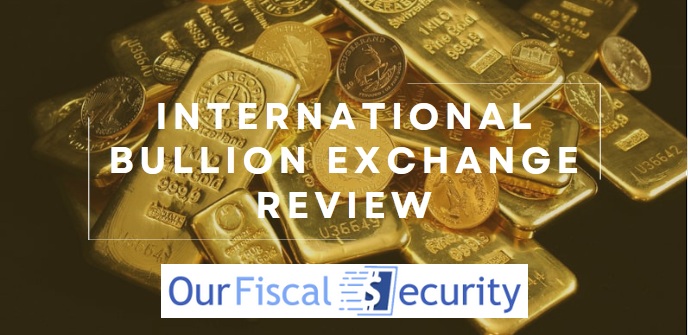Who Owns the Most Gold Privately?
With gold prices getting ready to increase, we have decided to learn who owns the most gold reserves in the world.
It is not surprising that central banks, national governments, and investment funds are the globe’s biggest holders of gold reserves. These organizations understand that gold bullion is the ultimate store of value that has protection from inflation and provides a haven during times of geopolitical and financial crisis.
Now, one thing that you can likely relate to is that gold reserves are something you should be thinking about personally. Why? Well, because anyone smart is diversifying. There are plenty of companies out there that can assist with this too. Go ahead, read the Goldco precious metals complaints and you’ll quickly learn that there aren’t any! It’s a good thing to do!
Let’s find out who owns the most gold reserves in the entire universe. If you’re ready, let’s dive in!
Safeguard your retirement wealth with tax-free benefits! If you want to protect your retirement savings from economic turmoil, then request a complimentary kit today. Find out about the #1 recommended precious metals investment company today.
How Much Gold Reserves Are There in the World?
Did you know that in 2019, the World Gold Council published its findings about the total gold in the world?
During that time, all the gold ever made by various mine production entities totaled about 190,040 metric tons. Nonetheless, there’s a massive twenty percent disparity between their findings and amounts produced by independent researchers.
One of the reasons for such discrepancies is that the World Gold Council depends mostly on officially reported earnings instead of the true data available on the ground.
Unluckily, not all countries in question were fair and honest about their current gold holdings. In most cases, the value declared is far less than the real amount of gold reserves in the country.
Here are some of the reasons:
Political reasons
A nation can decide to lie about how much gold it has so it can obtain a political edge over other countries. That has been speculated before when mentioning some of the globe’s biggest gold investors in the gold industry and gold market.
For instance, Chinese gold production has been under scrutiny, with western nations like the UK and the US claiming that the Chinese aren’t being honest about their current gold stocks.
Nevertheless, such allegations aren’t only challenging to prove but have been strongly denied by the Chinese government as Western propaganda.
With that, even if China were providing false information, most countries are probably doing the same as well.
Artisanal gold mining industry
It is not the biggest gold mining company that is involved in the precious metals industry. Did you know that a big portion of the planet’s gold reserves is supplied by small artisanal miners? Most of which either don’t have factual records or are involved in those black market precious metal deals.
Gold from those sources is difficult to account for and is accountable for most countries having more gold owned than they declare.
Currency manipulation
Gold goes a very long way in identifying the value of a nation’s currency. Normally, the more gold a country has in its central banks or Federal Reserve Bank, the stronger its currency is.
Nonetheless, for reasons to do with global trade, a nation may prefer to downplay the number of gold bars they have. On top of that, a slightly weakened currency can increase the export industry by a big margin.
Safeguard a funding source
In most cases, third-world countries are experiencing national debt replies from the the World Bank.
Still, that money is typically provided on the understanding that the nation is in dire need of it. Thus, such recipients of financial support will go to greater lengths to keep the real value of their gold reserves a top secret.
That makes it challenging to come up with a realistic estimate of the real value of gold owned around the globe.
Not all gold reserves are legitimate
One of the major concerns the World Gold Council has had to handle is that of illegally sourced gold.
Most gold mined in conflict regions, like war zones, finds its way to the vaults of different central banks across the globe.
Gold has been mined unethically, with most gross human rights violations happening. Thus, it’s never declared when it’s brought into a nation by the dishonest world’s biggest investors and buyers.
Some grim estimates seem to indicate that the highest gold reserves in the world are acquired in that manner.
How Do Gold Reserves Work
The purpose of a gold reserve differs based on the unique needs of every nation. It is important to understand that only because one country uses gold in a particular way does it not mean that others follow the same practices.
Keeping that factor in mind, we can review some of the ways nations use their gold reserves apart from the United States.
To value currency
Many countries no longer utilize a gold standard, but historically, there has been a direct link between the value of gold and currencies. Thus, any nation that decides to use the gold standard would need a gold reserve when handling fiscal matters.
Importing and exporting
The value of a nation’s currency depends on the balance between exports and imports. Nations that perform gold imports more than they export see a decline in currency value. Nonetheless, a country’s currency tends to grow more if you export more than you import.
Countries may try to boost the value of their currency by exporting gold from a gold reserve. Nations producing gold may sell that precious metal to other governments globally as a way to boost their country’s currency value.
Inflation
Inflation happens in a country when the prices increase while the money’s purchasing power decreases. During times of high inflation, most nations buy gold because this precious metal sustains its value better than most alternative currencies like property, rare earth elements, or silver.
Global investors also buy gold during high inflation to safeguard their finances during economic collapse.
The Usage and Value of Gold in the Modern World
Most governments these days aim to limit their reliance on gold and other precious metals. Still, gold serves as a dependable way for governments and individuals to invest.
Gold is also more likely to hold value over long periods, often increasing in value during times of economic instability or when fiat currencies start to lose their value. That’s why a lot of people and governments prefer to buy gold as an investment.
Others recommend returning to a gold standard. This system would help stop inflation and stop banks from overissuing money.
Does Having Gold Reserves Affect Any Country?
Any country that exports more gold or has the highest gold reserves will experience an increase in its currency as the gold price increases. That price increase of gold also increases the trade or balances the trade deficit. That also results in an increase in the country’s exports.
On the other hand, if any country lacks physical gold in its reserves and is a huge gold import of it, they have a weaker economy every time the gold price increases.
According to the WGC data from April 2021, central banks purchased 273 tonnes of gold in 2020. International Monetary Fund isn’t a country, but it’s not included in the list. Nonetheless, if it were, it would be in the third position of gold ownership, with 2,814 tons of gold kept in its safe.
Top Countries with Biggest Gold Reserves
Over the years, the top countries with the highest amounts of gold in the world have not changed. Below are the top countries with the biggest gold reserves:
1. United States (8,133.5 tons of gold)
America has held its top position in gold reserves for several years. Their gold market makes up seventy-nine percent of the country’s foreign reserve.
Fort Knox is the Bullion Depository of the US, a heavily protected vault establishment near the US Arm Post in Kentucky. It has most of the country’s gold reserves and important items. All those federal depositories are disregarded by the US Mint Police.
Speaking of America, if you’re not familiar with American Hartford Gold IRA then you need to educate yourself. This is what hundreds of thousands of Americans are investing in today.
2. Germany (3,362.4 tons of gold)
Did you know that gold makes up 74.5 percent of Germany’s foreign gold reserves? Their gold reserves are stored at Deutsche Bundesbank in Frankfurt am Main, the Bank of England in London, and the New York branch of the Federal Reserve Bank of the United States.
3. Italy (2.451.8 tons of gold)
Italy has 69.3 percent of foreign reserves. The county held its position in the top ten largest gold reserves on the planet for quite some time. Did you know that European Central Bank’s President Mario Draghi has contributed to it?
Draghi mentioned that it offers them a cushion against the fluctuation of the American dollar. Like the Eurosystem National Central Bank, they look after the country’s gold reserves, the national currency, and a trivial part of the ECB’s.
4. France (2,436.2 tons of gold)
Approximately 64.5 percent of the foreign reserves in France are gold. In the past years, the country has sold only a small amount of its gold, and there are discussions of ending it completely.
The far-right National Front Leader of the country, Marine Le Pen, wishes to stop the sale of gold holdings but also wants to repatriate the whole sum from a foreign land. That falls after the International Monetary Fund.
5. Russia (2,298.5 tons of gold)
For the previous seven years, Russia has turned out to be the second largest gold buyer in the entire world and was able to overtake China. It has led to exceeding Chinese gold production with the largest gold reserves in 2018.
Only twenty-two percent of its official gold holdings are Russian gold. It also purchased 227 tons of gold to widen its currency from American dollars.
It is worth mentioning that it has tried to expand its currencies from American dollars to gold and other foreign currencies in the past three years after its relationships with the Western countries grow sour.
Did you know that Russia sold most of its American treasures to purchase that gigantic amount of yellow metal?
6. China (1,958.3 tons of gold)
China becomes secretive about its precious metal activity after 2009. Since 2015, the People’s Bank of China has begun to share its monthly gold-purchasing projects. Even though the country is in the top ten countries with the largest gold reserves, it only has 3.3 percent of its foreign reserves.
Nonetheless, in 2021, China finally opened its doors to the local and national gold mining industry to support its economy. Approximately 150 metric tons of gold were shipped to China in May.
7. Switzerland (1,040 tonnes of gold)
This neutral country became the epicenter of European private gold ownership and trade as it traded with both Axis and Allied countries. These days, it mainly doe physical gold bullion trades with other countries such as China and Hong Kong.
The country’s foreign reserves hold 5.4 percent of gold in its safe. It is also the world’s biggest gold reserve per capita.
8. Japan (765.2 tonnes of gold)
The third biggest economy in the globe has gold bars worth $43 billion. That information came from a February 2021 report. Nonetheless, that figure has come down from the previous $46 billion. Remember that 3.1 percent of the country’s foreign reserves are physical gold.
9. India (686 tonnes of gold)
It’s not surprising to know that this South Asian nation is on this list. Did you know that India is the second biggest consumer of physical gold bullion?
They saw an increase in gold reserves in the last quarter of 2020 as the wedding season finally kicked in. it increased from 676.61 tons to 686.8 tons of gold.
10. The Netherlands (612.4 tons of gold)
67.4 percent accounts for gold in their foreign reserves. Recently, the Dutch Central Bank announced that it would be relocating its values to Camp New Amsterdam from Amsterdam. Its changes are because of the worrisome security measures of the location.
Conclusion: Is Holding Gold an Advantage?
There’s no doubt that gold holdings can be beneficial. Gold is widely perceived as a hedge against fluctuating currency exchange rates and inflation. On top of that, it’s sought to diversify national assets.
Nonetheless, gold has its drawbacks as well. Gold reserves don’t get interested. Thus, moving your resources into gold could deprive a nation of interest income.
Also, the countries with the biggest gold reserves aren’t weaker or stronger than other countries. They may simply have different priorities and prefer to hold their wealth differently.
Important Final Note: Before investing in gold, you need to read up on all your options. There’s Augusta, Goldco, American Hartford, and many more. I would start with the Augusta Metals review that I’ve written and published just for you.
|
5.0
|
4.7
|
4.5
|











